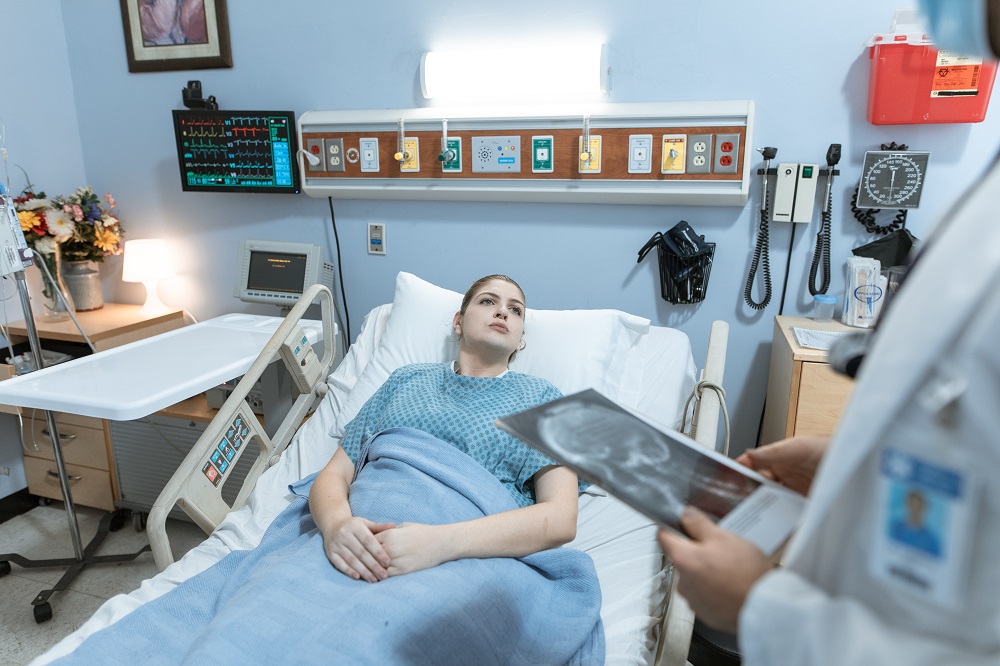You expect accurate injury and condition diagnoses from your doctor as a patient. Unfortunately, the high volume of patients, human error, and time crunch could result in receiving misdiagnosis, which can be devastating. This is because you receive unnecessary treatments and take drugs that could do more harm than good.
You also must be diagnosed and deal with the trauma that comes with waiting for a medical diagnosis again. If you’re not sure what to do if you or your loved one receives an incorrect medical diagnosis, read on for seven tips for dealing with a misdiagnosis.
1. Seek proper diagnosis
When you receive an inaccurate diagnosis, you do not have the right treatment plan, which could trigger all sorts of emotions, including fear and anger. An effective way to heal, overcome emotions and work on starting your treatment plan is by receiving an accurate diagnosis.

Consider getting different doctors’ opinions on your condition to prevent being misdiagnosed again. However, remember the right diagnosis could also be negative, so ensure you are ready to take the necessary steps to improve your symptoms. It is better to receive a negative diagnosis than be oblivious about what’s happening in your body.
2. Seek compensation
If a medical misdiagnosis resulted from your healthcare provider’s negligence, you should consider seeking compensation for their error. While medical compensation will not make up for the emotional and physical pain, it can go a long way in helping you seek an accurate diagnosis and fund your treatment. Seeking financial compensation also acts as your doctor’s wake-up call, prompting them to change their behavior and be more careful in the future.

Ensure you can adequately prove that the incorrect medical diagnosis was due to the doctor’s negligence before filing a medical negligence claim. Hire a lawyer from The Tinker Law Firm PLLC to get the support you need to build a solid medical malpractice claim.
3. Get professional guidance
Getting an incorrect diagnosis does not only delay receiving proper treatment. It may also result in receiving the wrong treatment. This could affect your emotional health, so you should consider scheduling an appointment with a mental health professional such as a medical doctor or therapist. Speaking to a therapist allows you to work through negative emotions, enabling you to reach a place of acceptance eventually. Talking to your medical doctor about the physical problems you could be experiencing, including panic or anxiety attacks, could allow them to prescribe the proper medication to help you heal.
4. Do not be too hard on yourself
Receiving an incorrect diagnosis could leave you questioning whether or not you did everything you could to help your doctor get the proper diagnosis. This could make you spend most of your time being angry or resenting yourself. However, although getting an incorrect diagnosis was wrong, consider extending grace or compassion to yourself. You could even identify something to focus on to help you fight the negative thoughts. For instance, you could pick up a new hobby.
5. Seek immediate medical attention
A medical misdiagnosis implies that you won’t get the treatment you need, which can be fatal or worsen your condition, especially if you have a terminal illness. When misdiagnosed, you might suffer harm from getting the wrong treatment options, delayed treatment for your disease, or not getting the treatment you need. Most health issues have overlapping signs, making it easier for inexperienced doctors to misdiagnose you. This may result in prescribing medications or recommending treatments for an illness you don’t have. This can be dangerous.

For some illnesses, prompt treatment is essential. Delayed treatment could make it nearly impossible to return to enjoying a good quality of life or recover. As such, seeking immediate medical care immediately after a diagnostic error is crucial to ensuring that you get the right treatment, terminal illnesses are treated immediately to prevent health deterioration, and ascertain that the harm you suffered is corrected.
6. Avoid talking to the insurance company
Until you’ve spoken to your medical malpractice lawyer, don’t issue a statement to the insurance company because they might try looking for ways not to pay your claim or pay less. Should you divulge crucial details that you’re supposed to, fighting for full compensation can be challenging. Don’t give any statement without talking to your attorney.
7. Maintain a journal
Maintaining a record of your daily medical progress allows your medical malpractice lawyer to track your progress better to help you get the compensation you deserve.

As your recovery progresses, consider keeping a journal of your improvements, how you feel, and the setbacks you may experience. This helps ensure that you don’t forget any crucial details. Without a journal, remembering the details of the setbacks and painful days can be difficult. Since these details are essential for your claim, their absence may not get you maximum compensation.
Endnote
Medical misdiagnosis can affect your physical, emotional, and mental health. If you receive an incorrect diagnosis, get professional guidance, extend grace to yourself, and find a proper diagnosis to help deal with your situation. You should also partner with a medical malpractice attorney to seek financial compensation.